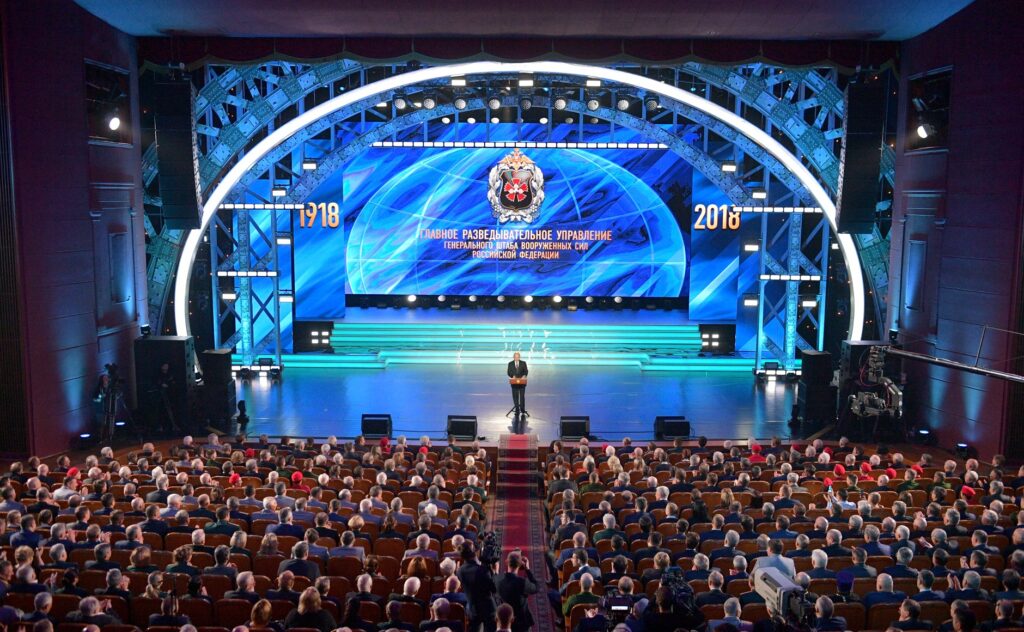Getcher MA at GRU U!

This story is absolutely crazy.
The achievement was even sweeter for Ferreira because he was not the striving student from Brazil he had portrayed on his Johns Hopkins application, but a Russian intelligence operative originally from Kaliningrad, according to a series of international investigations as well as an indictment the Justice Department filed in federal court Friday.
His real name is Sergey Cherkasov and he had spent nearly a decade building the fictitious Ferreira persona, according to officials and court records. His “team” was a tight circle of Russian handlers suddenly poised to have a deep-cover spy in the U.S. capital, positioned to forge connections in every corner of the American security establishment, from the State Department to the CIA.
Using the access he gained during his two years in Washington, Cherkasov filed reports to his bosses in Russia’s military intelligence service, the GRU, on how senior officials in the Biden administration were responding to the Russian military buildup before the war in Ukraine, according to an FBI affidavit.
A lot of the Russian spycraft was sloppy (there seems to be a consensus that Russian spycraft has become more sloppy in recent years) but he managed to pull the wool over a lot of people for a reasonable amount of time. Dude is currently in prison in Brazil, anticipating extradition to Russia on what I can only imagine are trumped up heroin trafficking charges. I know that some folks these days have soured on the Americans because they don’t like Joe Weisberg’s apparent fondness for Russia, but shit like this immediately brings the show to mind.
BTW, this has to be tough on SAIS:
The news quickly rippled through the ranks of Cherkasov’s classmates and professors at Johns Hopkins.No one was more dismayed than Finkel, the professor, who had written a letter of recommendation to support Cherkasov’s application to the ICC. “I had good reasons to hate Russian security services before. Now I am just exploding,” Finkel, a native of Ukraine who had denounced the Russian invasion and called for investigations of war crimes, wrote in anguished posts on Twitter. “I will never get over this fact. I hate everything about GRU, him, this story. I am so glad he was exposed…”
… The Cherkasov case has also raised difficult questions for Johns Hopkins, including whether it should do more to screen applicants, whether Cherkasov’s degree should be rescinded, and what the university should do with tuition payments it presumably received indirectly from the GRU.
I don’t think I’m giving away any secrets when I say that we’ve worried about this at my place of work. Any institution that feeds into the foreign policy workforce (including but not limited to the intelligence community [IC]) is an exceptionally lucrative target for this kind of infiltration. The spy not only gets an atmospheric sense of how US foreign policy students learn, they also develop relationships with a significant portion of the faculty and the student body. This enables, down the line, any number of approaches for a foreign intelligence service to take advantage of. Nor is this limited to foreign policy schools; it’s a trick that’s effective with any school that feeds into sensitive parts of the federal workforce. Agents can be covert or overt; most of these schools accept foreign students and don’t have any way of monitoring their relationship with their own ICs. Because most students are on a variety of social media networks these days, it’s easy to either keep in touch over the long-term or monitor those who disappear (presumably becoming part of the more covert parts of the IC). It’d be malpractice for either allies or competitors to *not* contemplate inserting people into these schools, and I’m skeptical that schools will have much if any capacity to ward this kind of infiltration off.
Not, of course, that I’ve given this any thought.


